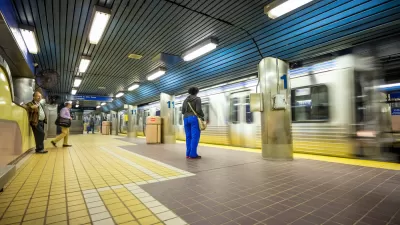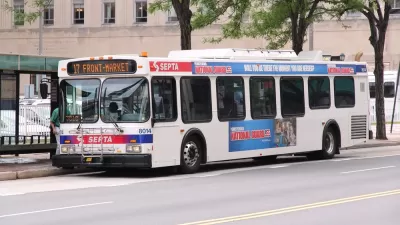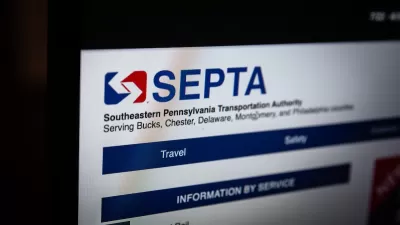Eric Jaffe writes on the appearance of the grocery store of the future in an unlikely place, Philadelphia's SEPTA transit stations.
Since early February, certain SEPTA stations in Philadelphia have offered transit passengers the ability to shop for groceries while they wait for their next train through an app connected to the online grocer Peapod.
Jaffe explains, "while awaiting a train, users can download the Peapod app, peruse the items in front of them, and scan the barcode of anything they'd like to purchase. The groceries are delivered to their homes later that day."
While virtual shopping has already made an appearance in other international cities, with Peapod operating in 24 U.S. cities, if it catches on in Philadelphia it could potentially expand throughout the country.
Some challenges that will be considered for future applications are poor internet connections in underground subway systems and the availability of space for virtual shopping aisle images.
FULL STORY: The Grocery Store of the Future?

Trump Administration Could Effectively End Housing Voucher Program
Federal officials are eyeing major cuts to the Section 8 program that helps millions of low-income households pay rent.

Planetizen Federal Action Tracker
A weekly monitor of how Trump’s orders and actions are impacting planners and planning in America.

Ken Jennings Launches Transit Web Series
The Jeopardy champ wants you to ride public transit.

Opinion: Transit Agencies Must View Service Cuts as Last Resort
Reducing service could cripple transit systems by pushing more riders to consider car ownership, making future recovery even less certain.

‘Smart Surfaces’ Policy Guide Offers Advice for Building and Maintaining Urban Tree Canopies
Healthy, robust tree canopies can reduce the impacts of extreme heat and improve air quality.

New Jersey Lawsuit Targets Rent-Setting Algorithms
The state of New Jersey is taking legal action against landlords and companies that engage in what the state’s Attorney General alleges is illegal rent fixing.
Urban Design for Planners 1: Software Tools
This six-course series explores essential urban design concepts using open source software and equips planners with the tools they need to participate fully in the urban design process.
Planning for Universal Design
Learn the tools for implementing Universal Design in planning regulations.
Heyer Gruel & Associates PA
Ada County Highway District
Institute for Housing and Urban Development Studies (IHS)
City of Grandview
Harvard GSD Executive Education
Toledo-Lucas County Plan Commissions
Salt Lake City
NYU Wagner Graduate School of Public Service





























